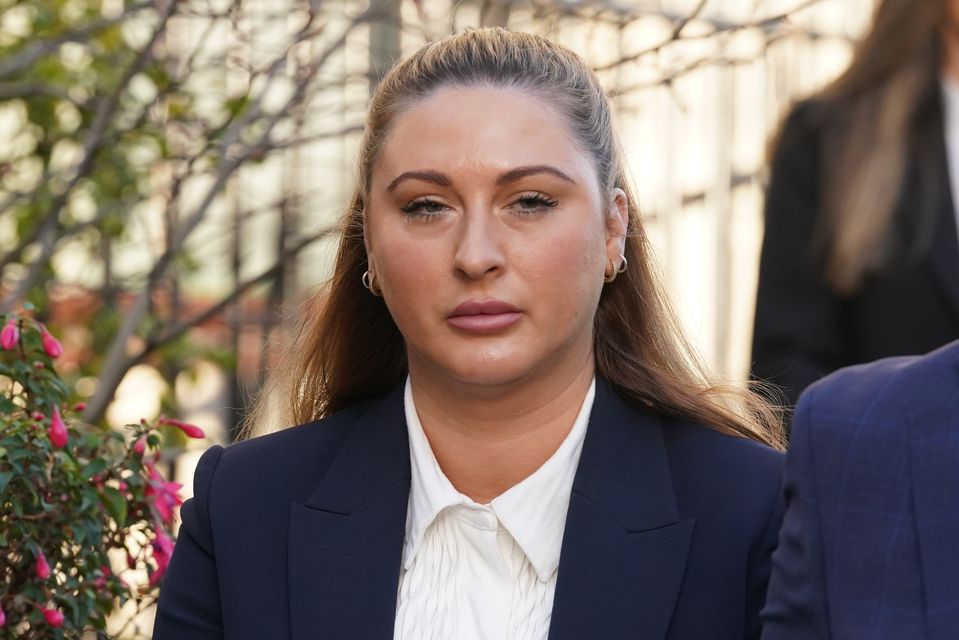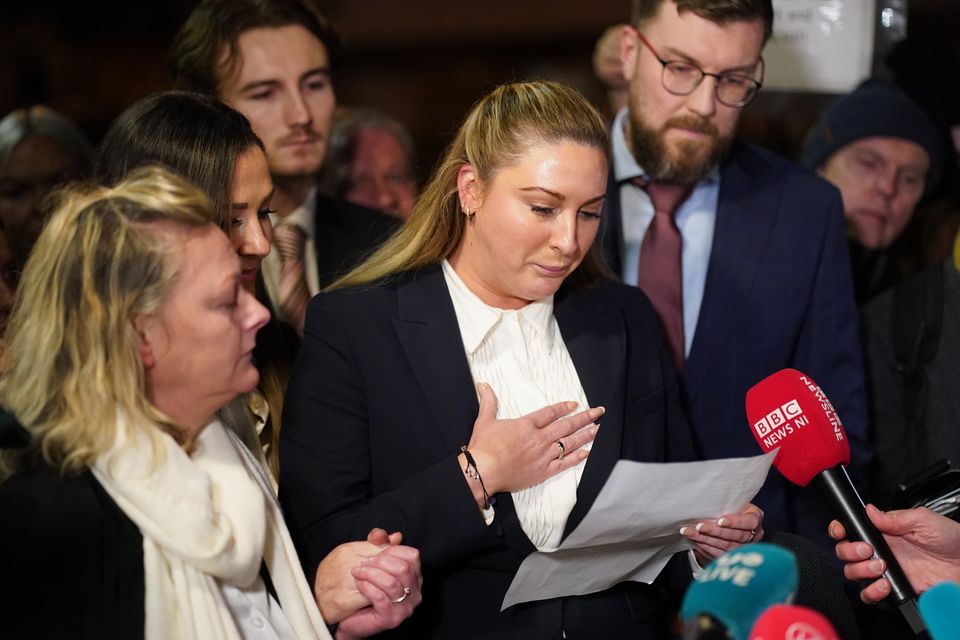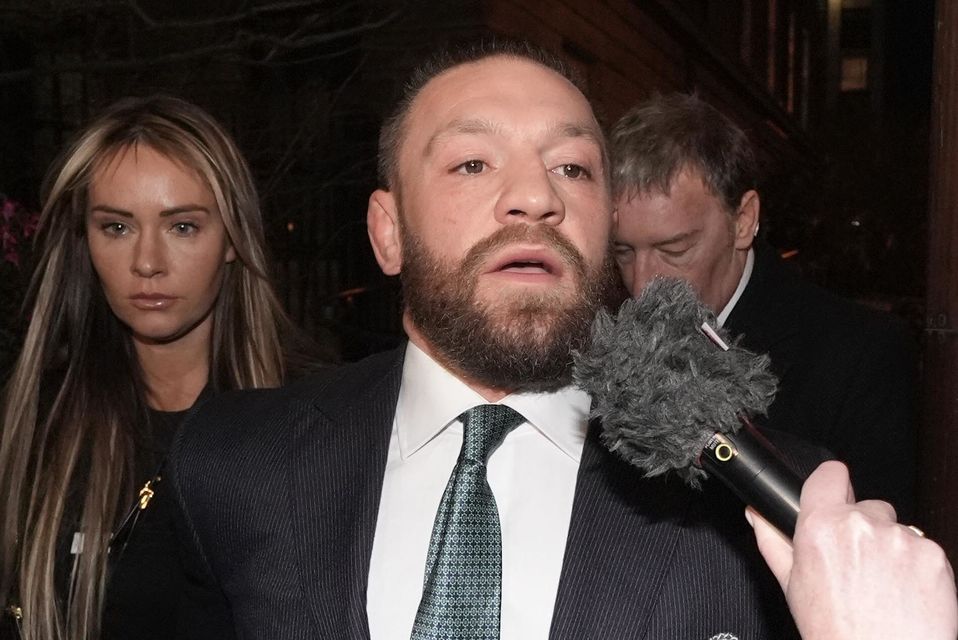Ireland’s premier has spoken to the Dublin woman who won a civil case against mixed martial arts fighter Conor McGregor to praise her courage.
Taoiseach Simon Harris said he also wanted to tell Nikita Hand, a hair colourist from Drimnagh, that her case had prompted an increase in women coming forward to ask for support.
Ms Hand, who accused the sportsman of raping her in a Dublin hotel in December 2018, won her claim against him for damages in a civil case at the High Court in the Irish capital on Friday.
The total amount of damages awarded to Ms Hand by the jury was 248,603.60 euro (£206,714.31).
Mr McGregor said in a post on social media on Friday that he intends to appeal against the decision. That post has since been deleted.
Speaking to the media on Saturday, Mr Harris said he told Ms Hand of the support she has from people across Ireland.
“I spoke with Nikita today and I wanted to thank her for her incredible bravery and her courage,” he said.
“I wanted to make sure that she knew how much solidarity and support there was across this country for her bravery.
Nikita Ni Laimhin (Brian Lawless/PA)
“I also wanted to make sure she knew of what the Dublin Rape Crisis Centre had said yesterday – that so many other women have now come forward in relation to their own experiences of sexual abuse as a result of Nikita’s bravery.”
The Dublin Rape Crisis Centre said the case has had a “profound effect” on the people the charity supports, and that over the first 10 days of the High Court case, calls to its national helpline increased by almost 20%.
It said that first-time callers increased by 50% compared to the same period last year, and were largely from people who had experienced sexual violence who were distressed and anxious from the details of case and the views people had to it.
Mr Harris said: “I wanted to speak with her and I wanted to wish her and her daughter, Freya, all the very best night, and I was very grateful to talk with Nikita today.
“Her bravery, her courage, her voice has made a real difference in a country in which we must continue to work to get to zero tolerance when it comes to domestic, sexual and gender-based violence.
“I don’t want to say too much more, because conscious there could be further legal processes, but I absolutely want to commend Nikita for her bravery, for her courage, for using her voice.”
Nikita Hand, who is also known as Nikita Ni Laimhin (Brian Lawless/PA)
Justice Minister Helen McEntee praised Ms Hand’s bravery and said she had shown “there is light at the end of the tunnel”.
She said: “I just want to commend Nikita for her bravery, for her determination and the leadership that she has shown in what has been – I’ve no doubt – a very, very difficult time for her and indeed, for her family.
She added: “Because of wonderful people like Nikita, I hope that it shows that there is light at the end of the tunnel, that there are supports available to people, and that there is justice at the end of the day.”
Ms Hand said in a statement outside court on Friday that she hoped her case would remind victims of assault to keep “pushing forward for justice”.
Describing the past six years as “a nightmare”, she said: “I want to show (my daughter) Freya and every other girl and boy that you can stand up for yourself if something happens to you, no matter who the person is, and justice will be served.”
Mixed martial arts fighter Conor McGregor (Brian Lawless/PA)
During the case, Ms Hand said she was “disappointed and upset” when the Director of Public Prosecutions (DPP) decided not to prosecute the case after she made a complaint to the Irish police.
In a letter to her in August 2020, the DPP said there was “insufficient evidence” and there was not a reasonable prospect of conviction.
Ms Hand asked the DPP to review the decision, saying she felt she was being treated differently because one of the suspects was famous.
Asked about the DPP’s decision not to prosecute, Mr Harris and Ms McEntee stressed the importance of the DPP’s independence on whether to prosecute.
“There are obviously structures in place where the DPP can meet a victim and can outline to them their reasons for not taking the case,” Mr Harris said.
“But there’s also always an opportunity for the DPP in any situation – and I speak broadly in relation to this – to review a decision, to consider any new information that may come to light, and I don’t want to say anything that may ever cut across the ongoing work of the DPP.”
Ms McEntee stressed that there should “never be any political interference” in the independence of the DPP’s decisions.
“I have, since becoming minister, given priority to and enabled a new office within the DPP to open specifically focused on sexual offences, so that this issue can be given the focus and the priority that it needs,” she said.


